PTEN
Recent articles
Genetic background steers PTEN syndrome traits
People with the syndrome, caused by variants in the gene PTEN, often have autism or cancer, or both, but it depends on the genetic diversity encoded in the components of distinct cell signaling pathways, according to a new study.

Genetic background steers PTEN syndrome traits
People with the syndrome, caused by variants in the gene PTEN, often have autism or cancer, or both, but it depends on the genetic diversity encoded in the components of distinct cell signaling pathways, according to a new study.
PTEN problems underscore autism connection to excess brain fluid
Damaging variants in the autism-linked gene cause congenital hydrocephalus—a buildup of cerebrospinal fluid in the brain—by turbocharging a downstream signaling pathway that promotes the growth of cells, according to a new study.

PTEN problems underscore autism connection to excess brain fluid
Damaging variants in the autism-linked gene cause congenital hydrocephalus—a buildup of cerebrospinal fluid in the brain—by turbocharging a downstream signaling pathway that promotes the growth of cells, according to a new study.
Mitochondria mediate effects of PTEN mutations
Whole-genome sequencing data — which include information about mitochondrial DNA — offer clues to why mutations in the same gene can lead to autism or cancer.
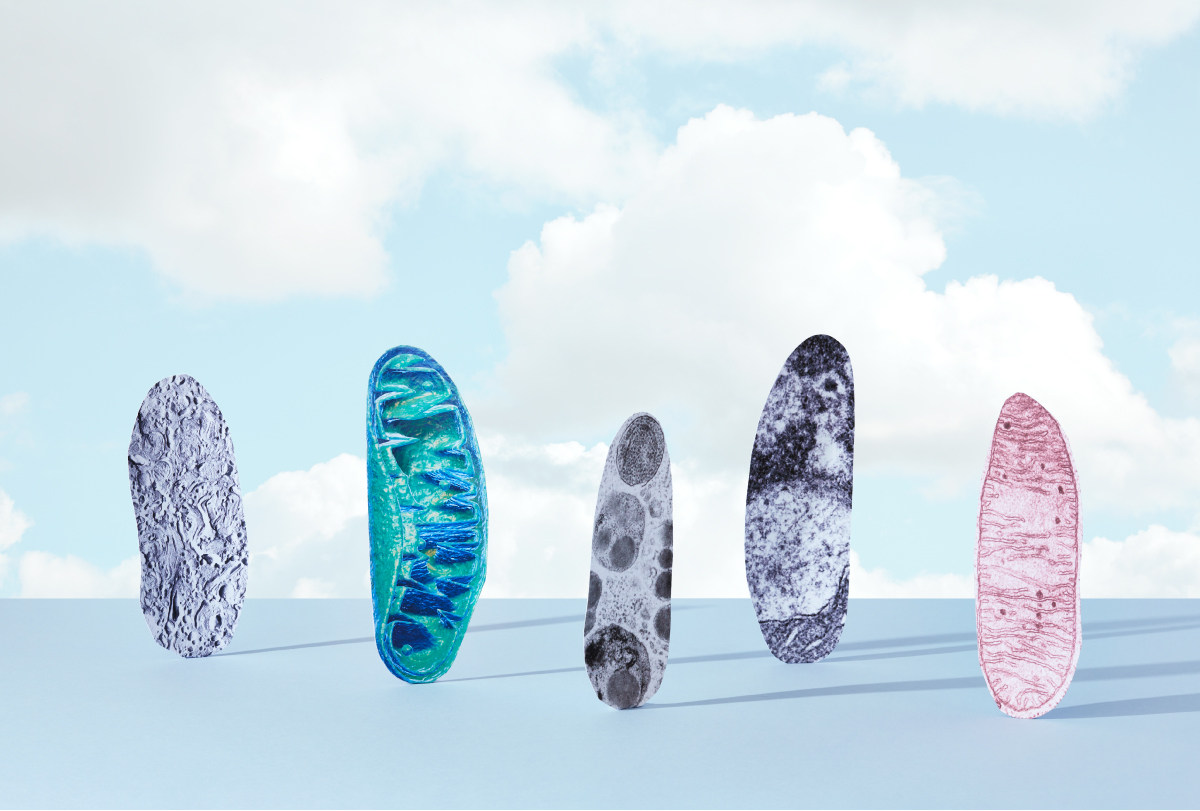
Mitochondria mediate effects of PTEN mutations
Whole-genome sequencing data — which include information about mitochondrial DNA — offer clues to why mutations in the same gene can lead to autism or cancer.
Genetic background sways effects of autism-linked mutation
Experiments offer clues to why certain mutations are associated with autism in some people and not others.
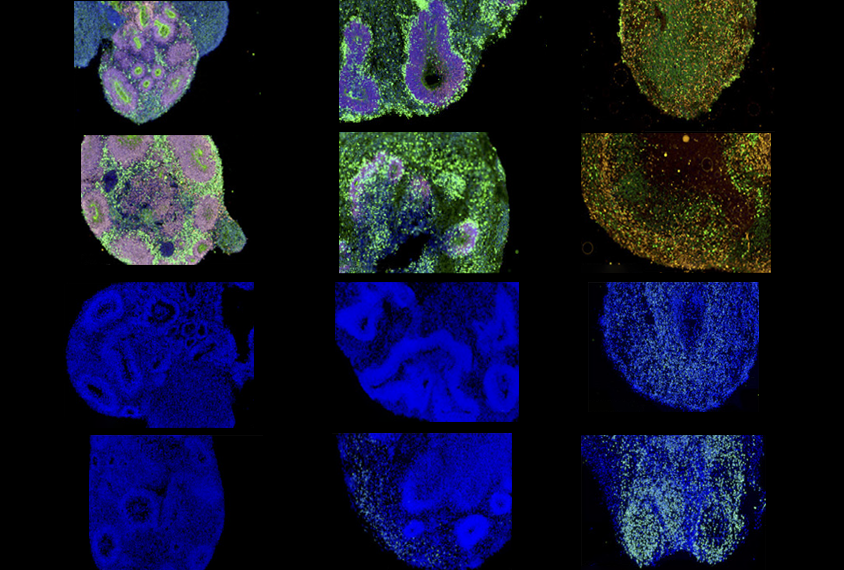
Genetic background sways effects of autism-linked mutation
Experiments offer clues to why certain mutations are associated with autism in some people and not others.
Fishing for protein partners nets clues to autism
Connections between 13 autism-linked proteins and their binding partners in excitatory neurons implicate a new molecular pathway.
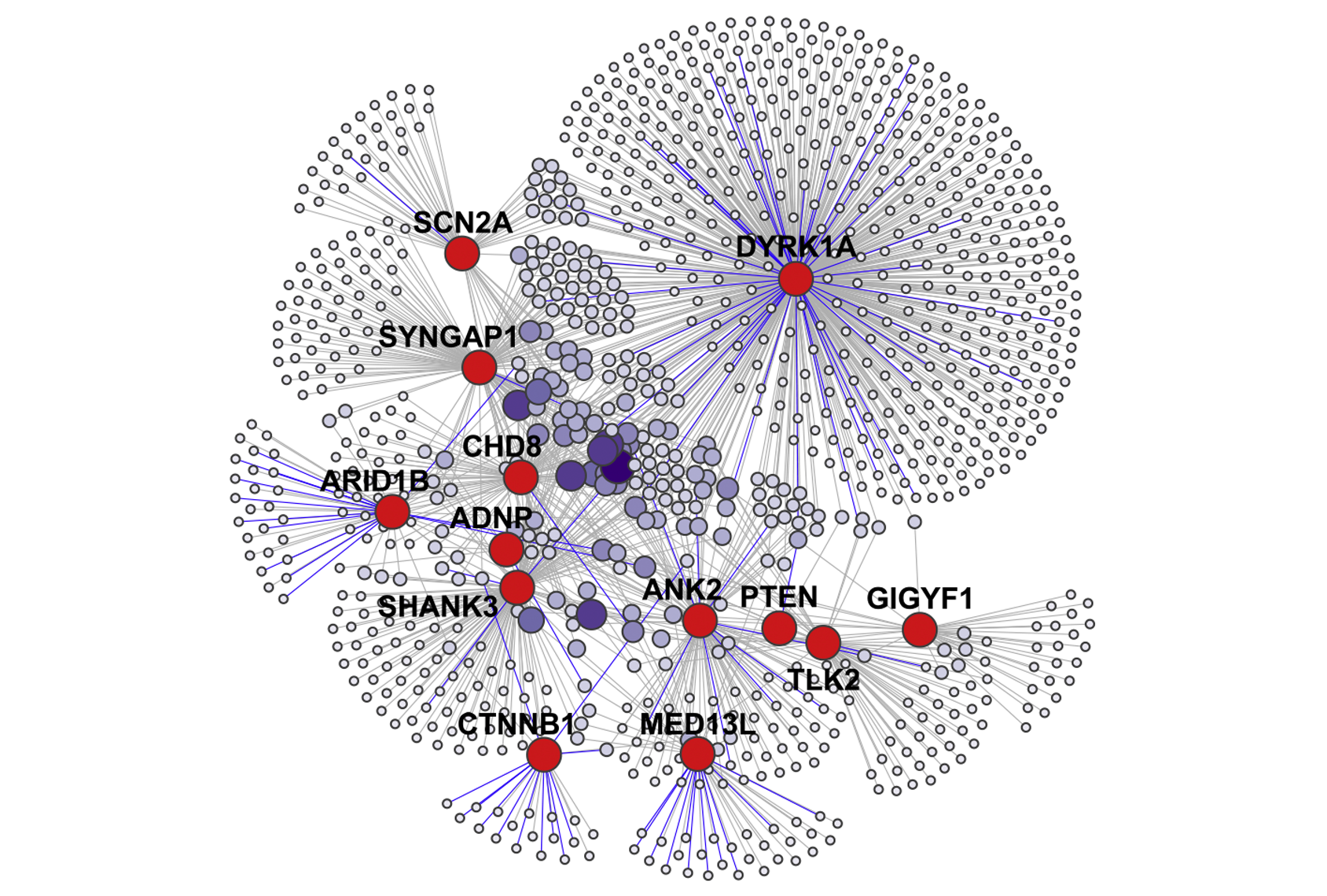
Fishing for protein partners nets clues to autism
Connections between 13 autism-linked proteins and their binding partners in excitatory neurons implicate a new molecular pathway.
Two-drug combo blunts autism-linked pathway in brain
One drug blocks mTOR signaling, and the other stops the blocker from acting anywhere in the body but the brain, lowering the potential for side effects.
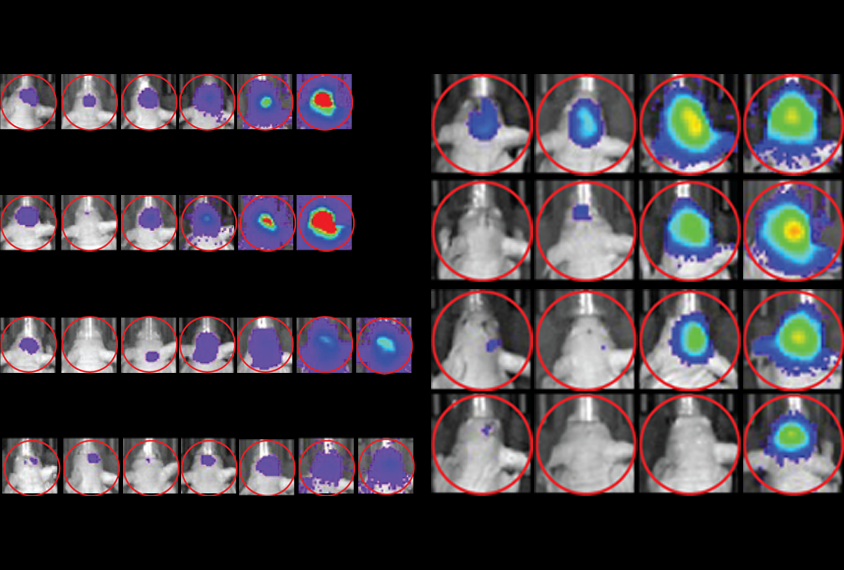
Two-drug combo blunts autism-linked pathway in brain
One drug blocks mTOR signaling, and the other stops the blocker from acting anywhere in the body but the brain, lowering the potential for side effects.
New diagnostic code for PTEN syndrome may spur research
The code may help scientists identify people with the autism-linked condition and recruit them into clinical trials.

New diagnostic code for PTEN syndrome may spur research
The code may help scientists identify people with the autism-linked condition and recruit them into clinical trials.
The cloudy connection between fragile X and cancer
People with the autism-linked syndrome lack a protein implicated in several cancers, but it’s unclear whether — or how — they are protected from malignancies.
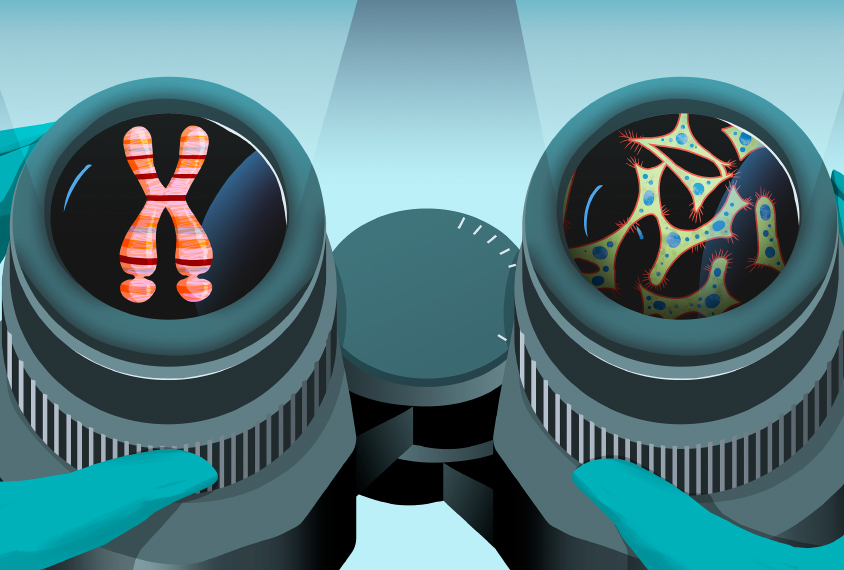
The cloudy connection between fragile X and cancer
People with the autism-linked syndrome lack a protein implicated in several cancers, but it’s unclear whether — or how — they are protected from malignancies.
Meet the ‘mitomaniacs’ who say mitochondria matter in autism
Clues that problems with mitochondria contribute to autism have been accumulating for decades. In the past five years, a mutant mouse and a flurry of findings have energized the field.
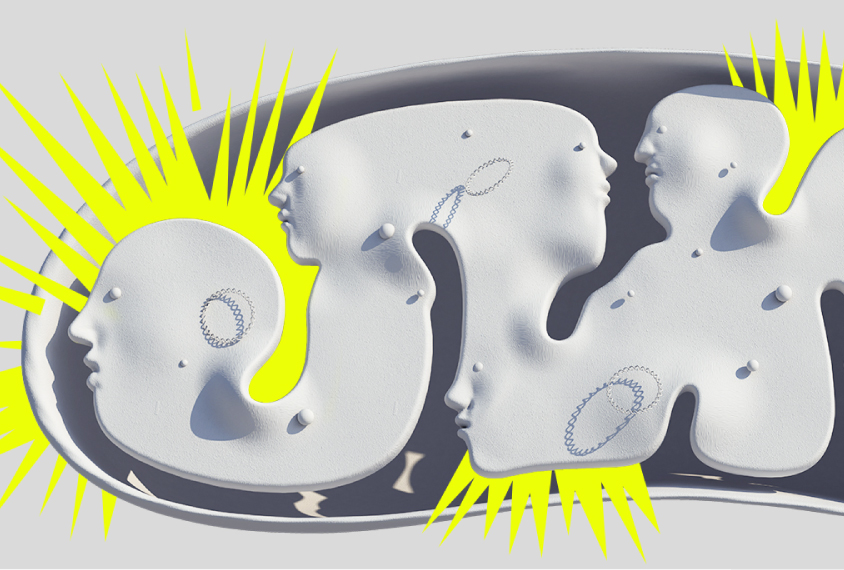
Meet the ‘mitomaniacs’ who say mitochondria matter in autism
Clues that problems with mitochondria contribute to autism have been accumulating for decades. In the past five years, a mutant mouse and a flurry of findings have energized the field.
Null and Noteworthy: Null rejection, repetitive behaviors, unsuccessful treatments
In this edition of Null and Noteworthy, tests of intranasal oxytocin and an Angelman syndrome treatment fail to see results.
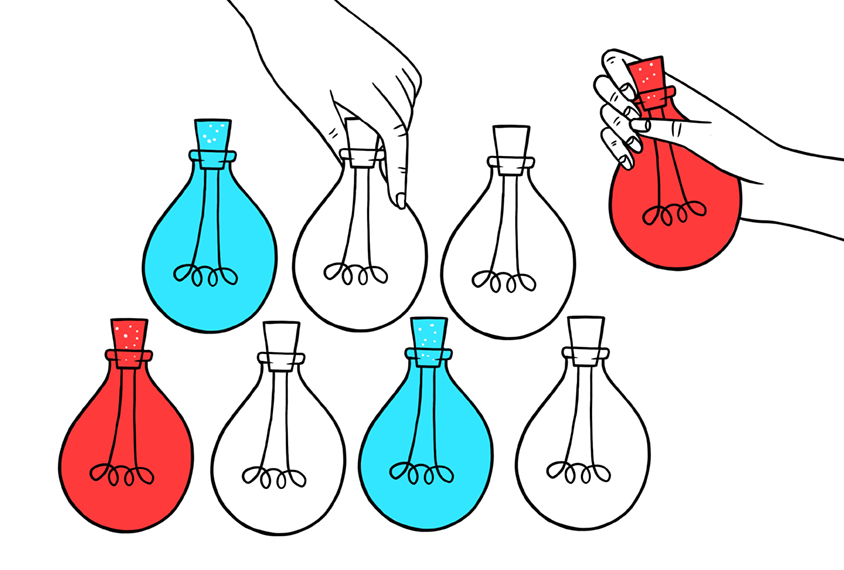
Null and Noteworthy: Null rejection, repetitive behaviors, unsuccessful treatments
In this edition of Null and Noteworthy, tests of intranasal oxytocin and an Angelman syndrome treatment fail to see results.
Explore more from The Transmitter
Microglia implicated in infantile amnesia
The glial cells could explain the link between maternal immune activation and autism-like behaviors in mice, but methodological challenges prompt questions about the new evidence.

Microglia implicated in infantile amnesia
The glial cells could explain the link between maternal immune activation and autism-like behaviors in mice, but methodological challenges prompt questions about the new evidence.
Oligodendrocytes need mechanical cues to myelinate axons correctly
Without the mechanosensor TMEM63A, the cells cannot deposit the appropriate amount of insulation, according to a new study.
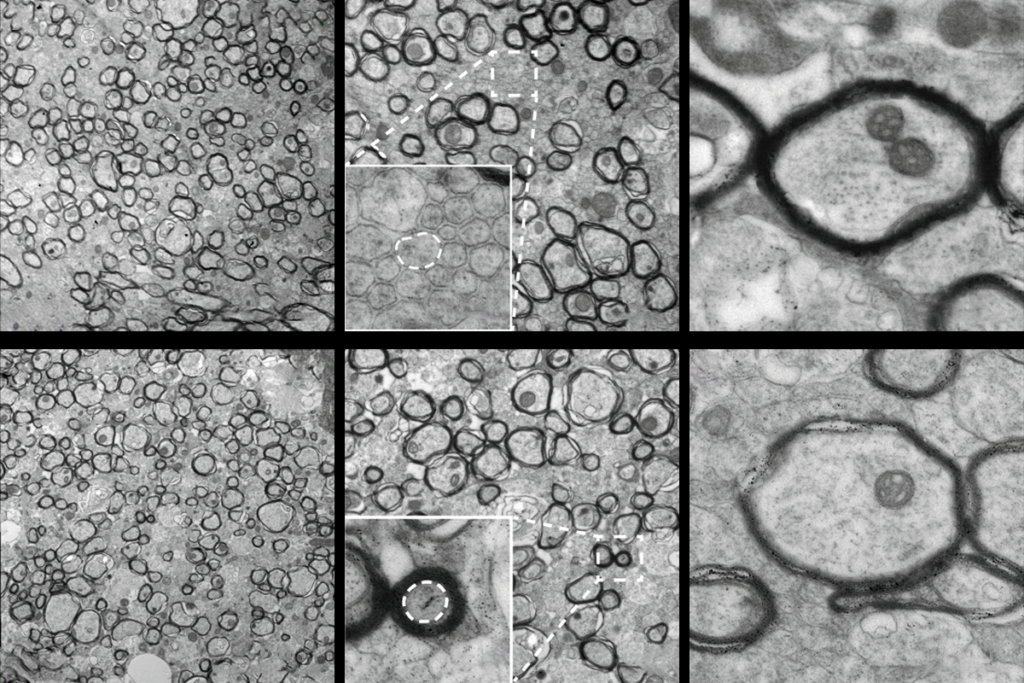
Oligodendrocytes need mechanical cues to myelinate axons correctly
Without the mechanosensor TMEM63A, the cells cannot deposit the appropriate amount of insulation, according to a new study.
Modern AI is simply no match for the complexity likely required for harboring consciousness, says Jaan Aru
He argues that our brain’s computations are of a completely different nature than any artificial intelligence because they take place across many spatial and temporal scales and are inextricably entwined with biological materials.
Modern AI is simply no match for the complexity likely required for harboring consciousness, says Jaan Aru
He argues that our brain’s computations are of a completely different nature than any artificial intelligence because they take place across many spatial and temporal scales and are inextricably entwined with biological materials.